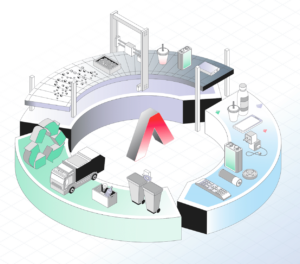In our quest for a sustainable and cleaner future, renewable energy technologies have emerged as the beacon of hope. Harnessing the power of natural resources like sunlight, wind, water, and geothermal heat, renewable energy offers a viable alternative to traditional fossil fuels. In this article, we explore the significance of renewable energy technologies and how they are shaping our path toward a greener and more sustainable world.
Abundant and Accessible:
Unlike fossil fuels that rely on imports and are susceptible to price fluctuations and geopolitical tensions, renewable energy sources are abundant and available in every corner of the globe. The International Renewable Energy Agency (IRENA) predicts that by 2050, 90% of the world’s electricity could come from renewable sources. This accessibility not only promotes energy independence but also drives inclusive economic growth and job creation.
Cost-Effectiveness:
Renewable energy is no longer an expensive luxury. It has become the most cost-effective power option in many parts of the world. The prices of renewable energy technologies have plummeted significantly over the years. Solar power costs, for instance, have dropped by 85% between 2010 and 2020, while onshore and offshore wind energy costs have decreased by 56% and 48% respectively. With falling prices, renewable energy is becoming an attractive choice for both developed and developing nations.
Environmental Benefits:
One of the most compelling reasons to embrace renewable energy is its positive impact on the environment. Fossil fuel combustion contributes to air pollution and climate change, posing significant health risks and economic burdens. By transitioning to renewable energy sources, we can combat air pollution, reduce greenhouse gas emissions, and mitigate the adverse effects of climate change. The World Health Organization estimates that air pollution from fossil fuels causes millions of deaths worldwide each year, highlighting the urgency to shift towards cleaner alternatives.
Job Creation and Economic Opportunities:
The renewable energy sector is a major driver of job creation and economic growth. Every dollar invested in renewables generates three times more employment opportunities compared to the fossil fuel industry. The transition to clean energy is expected to result in the creation of 14 million new jobs by 2030, significantly outweighing the potential job losses in the fossil fuel sector. Additionally, the renewable energy industry opens doors for innovation, manufacturing of sustainable technologies, and the development of new energy-related sectors.
Long-Term Economic Benefits:
Investing in renewable energy makes economic sense in the long run. While the upfront costs may seem daunting, the reduction in pollution and climate impacts alone could save the world trillions of dollars annually by 2030. Moreover, renewable energy technologies provide a reliable and resilient power supply, reducing the vulnerability to market shocks and price fluctuations associated with fossil fuels. By transitioning to renewable energy, countries can foster energy security, enhance their economic competitiveness, and create a sustainable future for generations to come.
Renewable energy technologies have ushered in a new era of sustainable power sources, offering a promising solution to the environmental, economic, and social challenges we face. By embracing renewable energy, we can reduce our dependence on fossil fuels, mitigate climate change, create jobs, and secure a cleaner and more prosperous future. It is time to harness the power of renewable energy and pave the way toward a sustainable world for ourselves and future generations.










